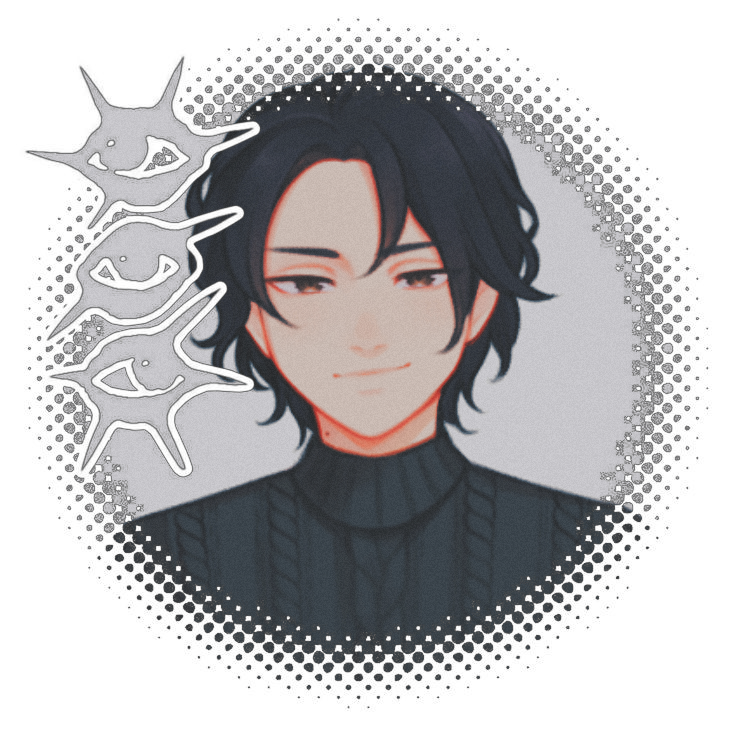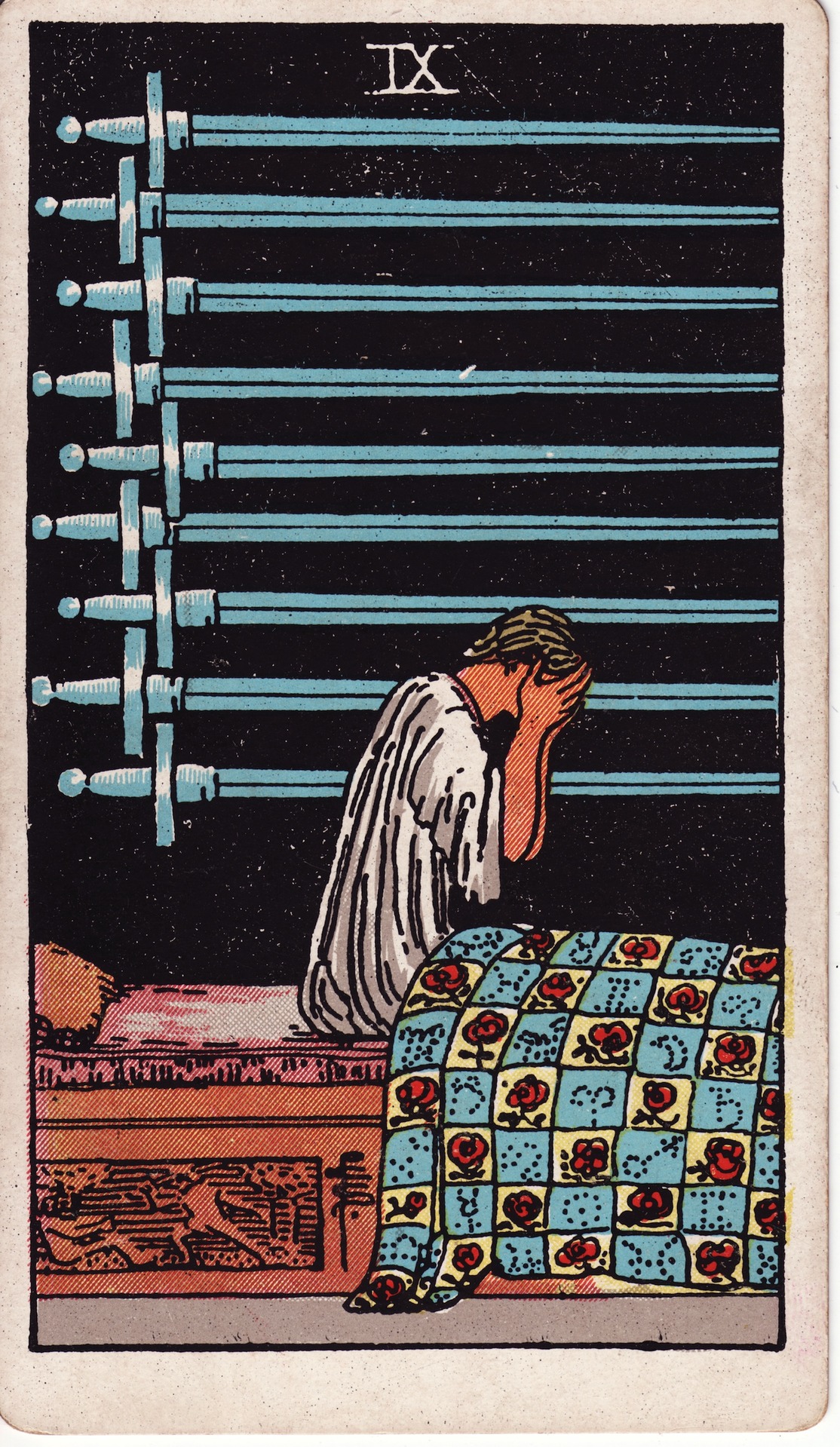

AKA Lord of Cruelty
It shows you that life’s scheme
Has more of omen, sign and dream
Than enter into the hearts of those
Who cannot the inner eyes unclose.
— Arthur Waite, Collected Poems
The Nine of Swords is a card of intense despair, a dark night of the soul. It reflects perpetual slavery to the thoughts running rampant circles in the head. You feel powerless to stop. Falling deeper into darkness, wide awake at 3:30 a.m. with an alarm set for 6:30 a.m., you beat yourself up, chide yourself, second-guess yourself, hyper focus on passive-aggressive situations, and lose sleep. This card signifies insomnia, nightmares, and depression. It also reflects an individual who is holding themselves to impossible standards. When the Nine of Swords appears in a reading, it reminds us to treat ourselves with kindness and compassion instead of judgment and criticism.
Swords are the scariest suit of the deck because they reflect the mind. They reflect internal dialogue. We often speak to ourselves in ways we would never speak to another.
- cutting deep, viscera, intimacy, dissection [5]
The bed, a symbol of rest and regeneration, has become the holding place of despair.
The reader should note the use of temporary blindness suggested by the figure, who blocks out her own eyes. This figure, like the Eight of Swords and the Two of Swords behind her, is completely in the realm of her very own mind. This action provokes great pain and distress. It is likely that if she were to hop out of bed and gaze up at the night sky, she would quickly realize her place in the scale of the universe. Life is dramatic. The ego loves to be placed in the center of all things. It results in stories and impressions that are often untrue. We torture ourselves with projected possibilities that never unfold. The card reminds us that in a moment of pain or duress, we should take a deep breath and open our eyes. Become grounded in the moment and release everything we have no control over. In the end, you can only control yourself and your reaction to life’s ups and downs.
The tone kind of pisses me off, the lack of control is almost being forgotten here.
Three suggests the calm of acceptance, the Nine shows the moment of agony, of dissolution.
In the card's deepest sense it shows a mind that takes on itself all the sorrows of the world, the Lamed Vav, or Just Man, of Jewish legend.
Can we see a way out of such dreadful pain? Both Buddha and Christ pictured the world as a place of unending sorrow, yet both also said that tragedy remains always a half truth, that the universe seen as a whole brings joy and peace. And Nietzsche wrote of embracing existence so completely, with such total ecstatic honesty, that we would gladly repeat, endlessly, every moment of our lives, whatever the pain.
| Baxter Ward | |
|---|---|
 |
[1] Bunning, Joan. Learning the tarot: A tarot book for beginners. S. Weiser. pp. 232–233.
[2] Graham, Sasha. Llewellyn's Complete Book of the Rider-Waite-Smith Tarot: A Journey Through the History, Meaning, and Use of the World's Most Famous Deck.
[3] My mom.
[4] Wen, Benebell. Holistic Tarot: An Integrative Approach to Using Tarot for Personal Growth.
[5] Me.
[6] Pollack, Rachel. Seventy-Eight Degrees of Wisdom: A Book of Tarot.